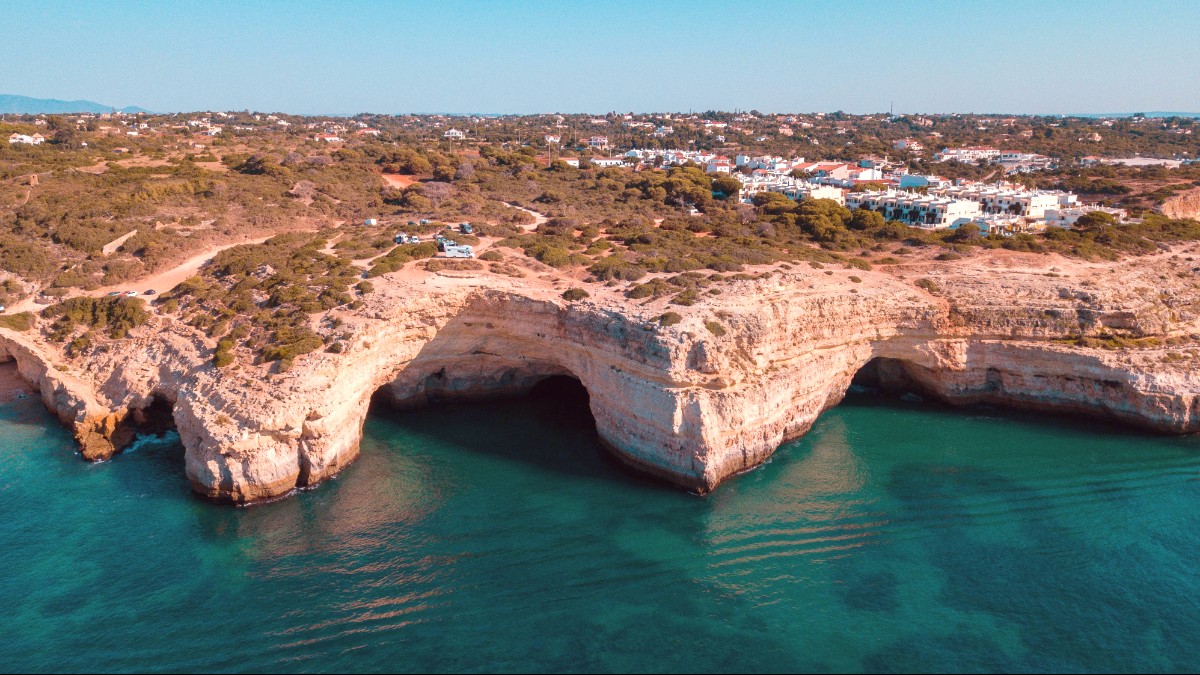
Portugal
Spring (March-May): Temperatures range from 15°C to 22°C (59°F to 72°F). Precipitation is low, and sunshine grows steadily. Humidity remains moderate. This period offers pleasant weather for exploration without intense heat.
Summer (June-August): Average temperatures are between 25°C and 30°C (77°F to 86°F), often feeling warmer, especially inland. This season has very low precipitation and high sunshine hours. Humidity is generally low, making the heat more manageable than in some other humid climates.
Prices vary widely based on your travel style, from budget-friendly options to luxurious indulgences.
High Season (June-August): Warmest weather, perfect for beach activities, lively atmosphere. Crowded beaches and attractions. Peak prices for accommodation and flights. Heat can be intense for sightseeing.
Balance of weather & crowd levels
Pleasant temperatures, fewer crowds, lower prices. Good for outdoor activities.
Sea water cooler in early spring. Chance of rain late October.
Budget-friendly & authentic
Significantly lower prices, few crowds. Mild climate for exploring and golf.
Cooler weather, some tourist businesses closed. Limited nightlife. Sea too cold.
Best months for specific experiences
June to September for warmest sea and strong sun.
April-May, September-October for comfortable temperatures.
Portugal is a member of the Schengen Area, simplifying travel for many nationalities. Citizens of many non-EU/EEA countries need a Schengen Visa for stays up to 90 days within any 180-day period. This visa allows free movement throughout the Schengen Area. The application process typically means completing a form, gathering supporting documents, and an interview at a Portuguese embassy or consulate in your home country.
Citizens from countries like the United States, Canada, Australia, New Zealand, and many South American nations do not require a visa for stays up to 90 days. This simplifies entry. Starting in mid-2025, visa-exempt non-EU nationals will need an ETIAS travel authorization before their trip to the Schengen Area. This is a pre-travel authorization obtained online, similar to the ESTA for the USA. Plan to apply for this in advance once it becomes active.
Valid for at least three months beyond departure, issued within 10 years.
Onward/return ticket reservations may be requested.
Hotel bookings or rental agreements for inspection.
Bank statements or credit card limits showing sufficient funds.
Required for Schengen visa applicants; recommended for all travelers. World Nomads, SafetyWing, Insubuy
Prices vary widely based on your travel style, from budget-friendly options to luxurious indulgences. The Euro (€) is the official currency.
ATMs (Multibanco network) are the most convenient way to get Euros, offering competitive exchange rates. Banks also exchange currency. Avoid airport exchange desks, which typically offer less favorable rates.
Prices fluctuate significantly by season.
Tipping is customary in Portugal but not required. A 5-10% tip for good service in restaurants is appreciated. Rounding up the bill to a convenient amount is also common. For cafes/bars, round up to the nearest Euro for a small order. For taxis, round up the fare or add €1-€2 for good service. For hotel staff, €1-€2 for bellhops or housekeepers is a kind gesture.
Albufeira is a safe tourist destination.
No specific vaccinations are required. Routine vaccinations (measles, tetanus, polio) should be current. Consult a healthcare professional before travel.
Algarve has a high UV index. Use High SPF sunscreen (30+), wear Wide-brimmed hats, seek shade (12 PM-4 PM), stay hydrated.
Drink plenty of water. Tap water is generally safe, but some prefer Bottled water due to taste. Carry a reusable water bottle.
Food Hygiene: High standards in Portugal. Eat at reputable establishments. Seafood should be fresh and cooked properly.
Jellyfish can be present in coastal waters, especially in late summer. Check local warnings at beaches and avoid contact.
On rocky beaches, wear Water shoes to protect your feet from sharp rocks or barnacles. Strong currents occur at some beaches; swim at supervised beaches and note flag warnings.
Cliffs can be unstable; keep a safe distance from cliff edges and do not climb on them.
Call 112 for police, fire, or ambulance services. This is the universal European emergency number.
Pharmacies (Farmácias) are identified by a green cross. For tourists, private clinics (e.g., Hospital Lusíadas Albufeira) are often preferred. Travel insurance for private medical care is good.
EU/EEA citizens use their European Health Insurance Card (EHIC) for state-provided healthcare at a reduced cost or free.
Albufeira is generally safe, but petty crime can occur. Awareness helps.
The Algarve generally experiences mild winters. Risks are few, but knowing them helps.
Portugal is in a seismic zone, but significant earthquakes are rare.
Follow local warnings.
Strong currents can occur. Swim at supervised beaches and heed flag warnings. Cliffs can be unstable.